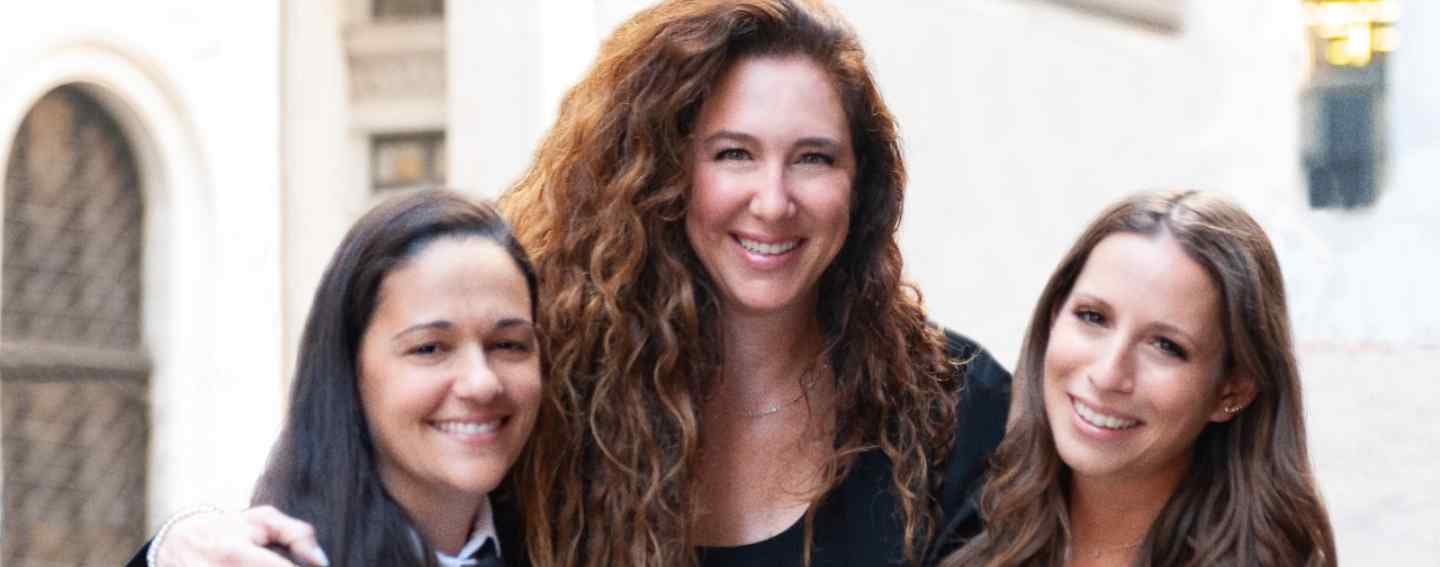In addition to dominating sectors of the US grades and cleared swaps market, the team at newly founded Pegasus Commodities has also disrupted the US cargo market. HC Insider speaks to Karey Baum, Founder of Pegasus Commodities, to find out more about her team of former traders with high-frequency algorithmic trading, physical crude, market making, and traditional brokerage experience in the crude oil space.

Pegasus Commodities was officially launched in March 2021 by Karey Baum, previously of Jump Trading, with the intention to redefine the meaning of excellence in the crude oil execution/brokerage space. With Marjorie Flaccavento, formerly of GFI, joining as COO, the team of two was quickly expanded with the addition of crude oil broker Samantha Vulpis. Baum speaks to HC Insider about why she decided to create a forward-thinking dynamic team that wants to evolve the marketplace and make it a more efficient and transparent place to work.
HC Insider: What does Pegasus Commodities do?
Karey Baum: Pegasus Commodities is a commodities brokerage firm focused on crude oil and related products. We broker all the cleared products relating to crude oil, such as cleared futures, options and cleared swaps. We also broker all the physical grade markets for WTI, as well as US export and import cargoes. Team Pegasus has also had success disrupting the US export market which has previously only had a single broker representing the market since 2015 – until now.
HC Insider: Could you tell us about your professional experience and your current role at Pegasus Commodities?
KB: I started my career in 1991 on the trading floor at the Chicago Board of Trade as a runner, then moved to the CBOE (Chicago Board Options Exchange) at the age of 21 to trade in the S&P equity options pit. From there I moved to the Pacific Coast Options Exchange and after that I relocated to New York to trade silver options and futures on the floor of the COMEX. I later took on a role as Director of New Business for a competing international crude oil brokerage firm and developed two separate market-making desks in the crude oil space. They are now two of the leading liquidity providers in the cleared crude markets today.
HC Insider: What was the reason behind launching Pegasus Commodities?
KB: I’d spent the past 10 years trying to modify and evolve the cleared crude market through technology, transparency and highlighting inefficiencies in the market. When I left Jump Trading, I had a successful track record and was being heavily recruited. I noticed recruiters were asking me the same set of questions, one of which was “what’s the most important thing to you in a new role?” The answer to that is the people. I wanted to work with people that have a vested interest in each other. I wanted the people that I work with to be the same people that I enjoy spending time with outside of work, in order to create a better work/life balance. Working in commodities trading, you can expect to spend between twelve to sixteen hours a day working at a desk with someone who maybe doesn’t know anything about you personally. It can be very cold at times and that left me wanting to improve the quality of my work environment. You cannot be successful and complacent in this business. When I had the opportunity to build my own business, I picked the women I would want by my side. This is a hard business – it can be all consuming – working with a team you like and trust is essential and allows us to create a better experience and result for our clients.
This is a hard business – it can be all consuming – working with a team you like and trust is essential and allows us to create a better experience and result for our clients.
HC Insider: Could you tell us about your team?
KB: Marjorie Flaccavento, COO was an oil options market maker at Prime prior to her time at a competing brokerage firm. She holds an MBA in Finance and knows the options and CSO markets better than anyone I've ever met. She never misses a detail and is as sharp as they come. Samantha Vulpis previously worked at Morgan Stanley, has a master’s degree in data mining and analytics. Sam is responsible for building a very successful US grades desk in Houston from scratch for a competing brokerage firm. She has a deep knowledge of the grades market and the participants around those physical and cleared markets in the US. My experience is heavily rooted the WTI/Brent market-making space in futures and cleared swaps liquidity provision as well as the physical markets. Between the three of us, we really have more knowledge about the entirety of the US crude oil market than most other teams in general, which allows us to represent the client in a way that gives them an edge they cannot attain elsewhere.
HC Insider: What were some of the challenges you faced when creating the company?
KB: The biggest challenge in setting up the company was meeting the regulatory and capitalisation thresholds. I financed the company, and it took seven months to get everything set up and meet all the regulatory requirements. A lot of our competitors are under the umbrellas of one of the larger conglomerate brokerage firms. But we are not. We’re completely independent so it took us time, paperwork, and capital. Right now, the biggest challenge for our firm, as well as any other firm, is keeping up with back-office requirements. Maintaining compliance and staying on top of regulatory requirements is the hardest part of this business. A lot of brokerage houses would probably agree with that. We work with compliance specialists to make sure we are meeting our requirements there. We also employ technology and cyber security specialists and are developing our own software to help manage our internal needs for communication.
HC Insider: What were some of the cultural changes you were hoping to implement at the company for your team?
KB: We're working with a professional coach right now to make sure that we're paying attention to everyone’s needs. Culture is the most important thing to us as we grow. We want everyone to be able to work in an environment where they feel comfortable to voice their opinion. We want everyone to feel that their value is recognised. We're working on creating excellent levels of communication and establishing our culture now, so that as we expand, we know who we are, and we know how to include and lead others down this path of inclusiveness and acceptance inside this highly competitive environment of commodities trading. We do not compete against each other we are a true team.
HC Insider: What are some of the major trends you have seen in your career?
KB: The major trend that I have observed in the crude oil space is efficiency and technology in the marketplace. The crude oil industry tends to run about ten years behind the next evolved commodity and as such is ripe for evolution. The technology evolution we've witnessed across the board in the financial industry during the Covid-19 pandemic has been remarkable. Our market is very hesitant towards technology. There are still many participants in the marketplace who’ve been here for a very long time. However, there's a younger generation coming in right now, and I think that the evolution of the crude market is underway with technology being the main driver.
HC Insider: What is your five-year plan for Pegasus Commodities?
KB: We plan to expand to cover the entire barrel over the next five years and be one of the top-tier brokerage firms in the world. There will be many new technological resources we deploy going forward and we will have offices in Europe and Asia.
HC Insider: What advice would you give for women that are working in commodity trading?
KB: Don’t be afraid to be exactly who you are. I’ve often found throughout my career that I have been required to fit into a box, but in the process, I would dampen the things that make me unique and set me apart from the pack. Now that I am running my own firm, I know that being different from the rest is what makes me exceptional not the exception and that is what I look for in others that I want to work with and hire.
Also, ask questions and ask for help when needed. Having the courage to ask questions when you are unsure of the task or details to me is essential. I would much rather repeat myself or even ask the question myself than have an error that could cost both money and reputation. I also think that asking for help when you need it is an important life skill in general and not the easiest to learn, especially for me. It is not weak to need help from those around you or give help to those who may ask for it.
Lastly, support other women. I have been in this industry since I was 19 years old and can count on one hand the number of times that other women have given me guidance or support. I want to change that by setting the example of lifting each other up rather than allowing an industry to pit us against each other. The challenges that face women in a largely male dominated industry are many, but they are far easier to navigate when we support and look out for each other and work towards creating opportunities for the next generation.

